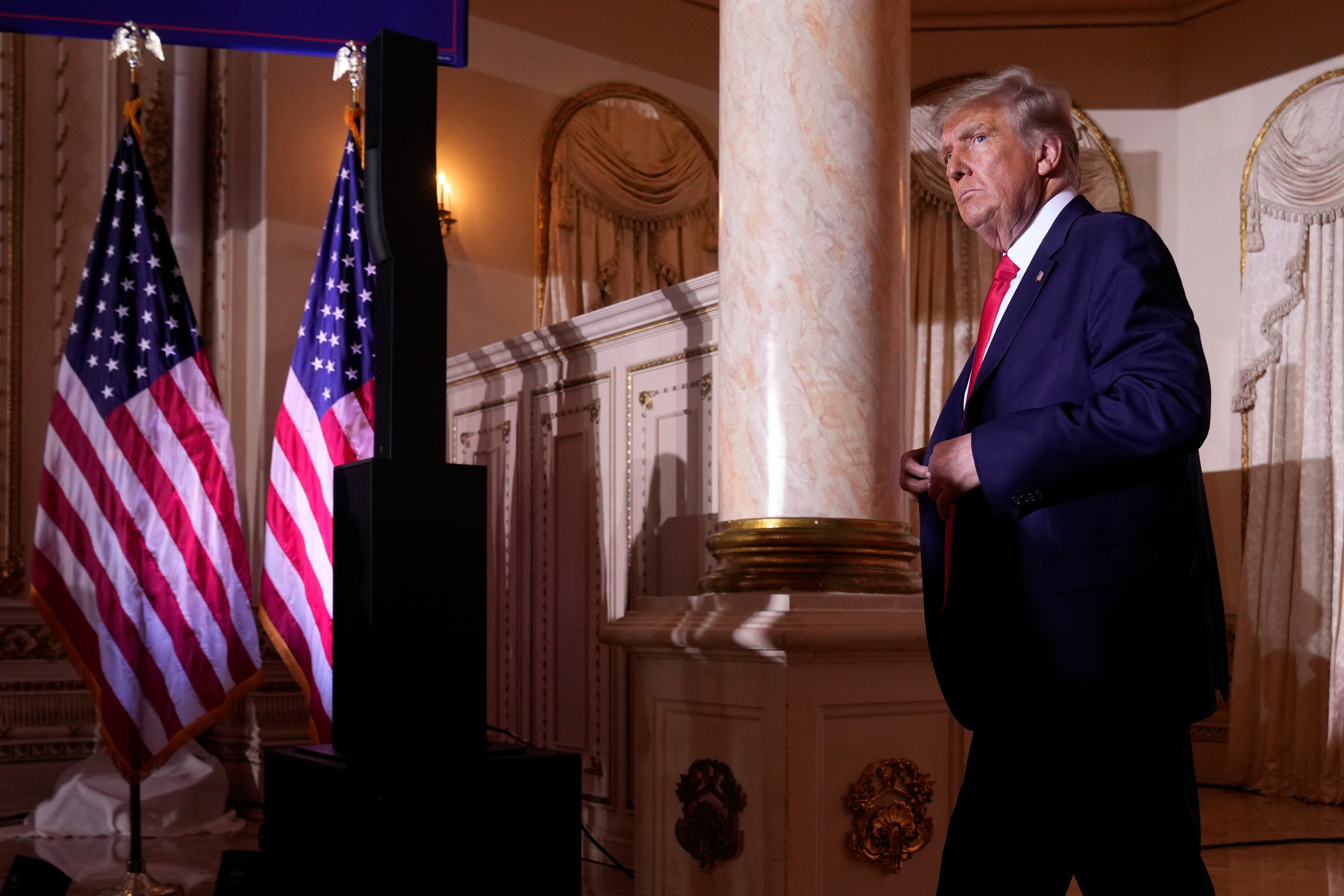Donald Trump’s influence still hangs over the US Congress
Republicans are in a highly-embarrassing fight to elect the speaker of the House of Representatives, writes Sean O’Grady


If you want to find a microcosm for the way politics in America has degenerated into a bitter slug fest between two sides in an evenly divided nation, you need look no further than the election for a new speaker of the House of Representatives.
No surprise, of course, seeing as the House is the closest representation of the balance of opinion among the American people – and it is a visually fractured nation. Indeed, the contest for the speakership – an important role constitutionally and third in the line of succession for the presidency – also illustrates just how much the Trumpite “Make America Great Again” (Maga) movement has split the Republican party. It is difficult to see how the lower house of the US Congress getting much positive done before the general (including presidential) elections next year, or even after if these trends persist.
After November’s midterm elections the Republicans gained control of the House, but not by as much as to neuter what has morphed into the Maga group, the so-called Freedom Caucus. Around 20 to 30 Republican rebels are blocking the election of any of the main candidates, and show no sign of being ready to compromise. The normal course of events would be for the leader of the largest party in the House, in this case Republican congressman Kevin McCarthy to become speaker as a relative formality, and then swiftly move to the business of legislation.
In multiple rounds of voting, McCarthy has so far failed to get the ballots required to gain the speakership – what is known as a “floor fight”. In the 200-plus years since the first two-year Congress met in 1789, such floor fights have occurred just 14 times, according to the historian of the House. This is the first time in a century.
Even that enticing prospect of making trouble for President Joe Biden – just as McCarthy’s predecessor, Nancy Pelosi, did for Donald Trump when he was president – isn’t enough to persuade the Trumpites to drop their doctrinal objections to McCarthy, and their childishness about the whole process. Like their spiritual and political leader, Trump, they are capable of the most bizarre of manoeuvres, such as nominating Jim Jordan, a Republican representative, to challenge McCarthy, moments after Jordan himself nominated McCarthy for Speaker and rejected attempts to draft him.
Democrats, on the other hand, remained unified behind their party’s new leader, Representative Hakeem Jeffries of New York; and Jeffries and his colleagues may soon be in the unusual position of having the mainstream Republicans ask them to help them get McCarthy elected against the obstruction of the Trumpite Republicans.
So McCarthy remains a hostage in the hands of the Trumpites, but so too does the legislature of the United States. Eventually some compromise will have to be found, because laws that need to be passed will remain unpassed, but past experience of brinkmanship over passing the federal budget suggests that both sides are capable of pushing things over the edge of reason.
The polarisation of American politics seen in close and contested elections, deadlocks over Supreme Court nominations and ever more extravagant pork barrel law-making seems to be intensifying. The only hope is that the US system remains robust enough to survive this continual stress testing – and Trump did come close to breaking it. Some compromise candidate may emerge, or enough representatives will abstain (present but not voting) to end up with some sort of solution. Meanwhile, America waits, and waits, and waits for another deadlock in DC to break.



Join our commenting forum
Join thought-provoking conversations, follow other Independent readers and see their replies
Comments